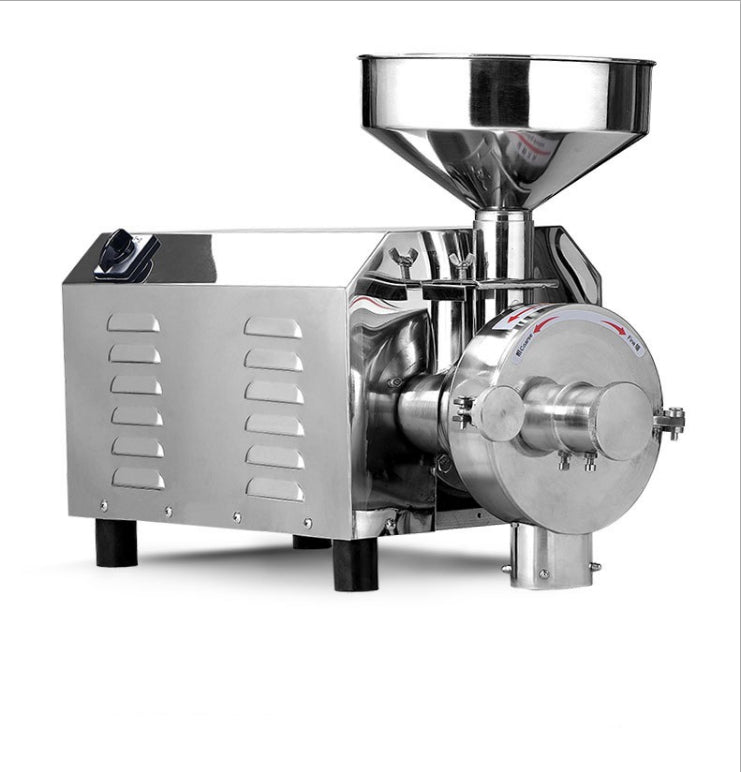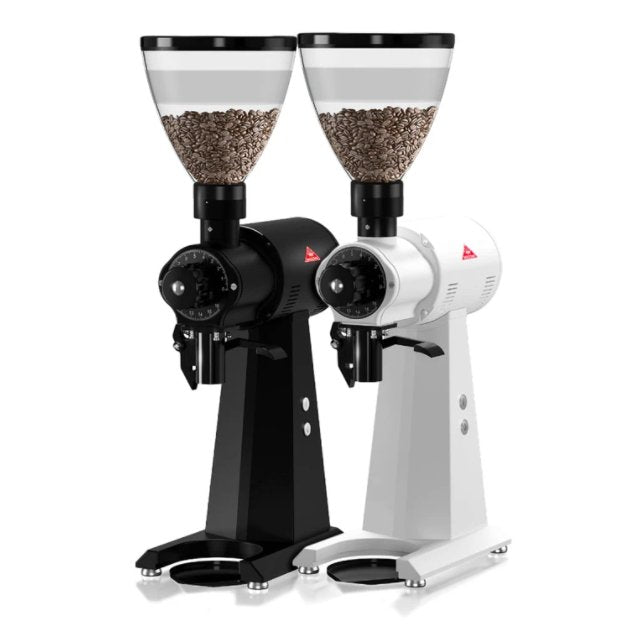Increase Productivity with an Industrial Coffee Grinder in Your Establishment
Increase Productivity with an Industrial Coffee Grinder in Your Establishment
Blog Article
How to Choose the Perfect Industrial Coffee Mill for Your Company
Selecting the ideal industrial coffee mill for your business is a diverse decision that calls for careful factor to consider of several vital variables. It is necessary to evaluate your particular grinding demands, including the quantity of coffee refined and the desired work consistency, as these elements straight affect taste and consumer contentment. In addition, comprehending the numerous kinds of mills readily available can considerably influence your functional performance. As you browse these considerations, one need to also evaluate the effects of budget plan and maintenance. What various other factors could make or damage your choice?
Assess Your Grinding Requirements
When selecting a commercial coffee mill, one must initially analyze their grinding requirements to make certain ideal performance and uniformity. This first assessment entails comprehending the volume of coffee to be refined daily, as well as the desired work size for different developing methods. A high-capacity grinder may be necessary for businesses offering large amounts of coffee, while smaller sized operations could discover a more compact model sufficient.
Furthermore, it is important to consider the kinds of coffee beans being used, as various beans may call for specific grinding strategies to accomplish the very best taste account. Oily beans might necessitate a mill developed to take care of such attributes without clumping or overheating.
Specialty coffee businesses usually demand exact work dimensions to enhance removal and taste, making it important to choose a grinder that can provide consistent results. Assessing the readily available space and electric demands will certainly aid in selecting a grinder that fits flawlessly into your functional operations.
Understand Grinder Kind
Recognizing the various types of commercial coffee grinders is critical for making an educated option that satisfies details functional demands. There are largely 2 categories of mills: blade grinders and burr grinders.
Blade grinders utilize spinning blades to cut the coffee beans, leading to an irregular work dimension - Industrial Coffee Grinder. While they may be extra inexpensive, they are typically not appropriate for commercial applications where accuracy is important
On the various other hand, burr mills give a much more consistent work by crushing the beans between 2 surface areas. They can be further classified into flat burr and cone-shaped burr mills. Flat burr grinders offer a consistent grind size and are usually preferred for espresso preparation, while conical burr grinders are flexible and can take care of a series of brew methods, from espresso to French press.
When picking a mill, take into consideration the certain demands of your business, consisting of preferred grind consistency, manufacturing volume, and the sorts of coffee drinks you plan to use - Industrial Coffee Grinder. Each grinder type has its restrictions and advantages, so comprehending these nuances enables educated decision-making that lines up with operational goals
Evaluate Work Size Uniformity
Accomplishing grind dimension uniformity is crucial for generating premium coffee, as variants in fragment size can substantially affect removal and flavor. When selecting an industrial coffee grinder, it is critical to evaluate exactly how well the device preserves uniformity in work size throughout different batches. Inconsistent work dimensions can result in uneven extraction, causing a cup that might taste extremely bitter or weak.
To examine grind size consistency, take into consideration grinders with attributes such as adjustable work setups and premium burrs. Burr mills, in particular, excel in producing consistent particle dimensions contrasted to blade mills. The material and shape of the burrs play a crucial function, with stainless steel and ceramic options offering resilience and precision.

Think About Manufacturing Capability
In the fast-paced globe of coffee manufacturing, taking into consideration production capacity is vital for services intending to fulfill demand without sacrificing high quality. The manufacturing capacity of an industrial coffee mill directly influences a company's ability to meet orders effectively, manage inventory, and reply to rising and fall market fads.
When assessing manufacturing capability, it is important to review the grinder's output price, typically gauged in pounds per hour. This dimension should straighten with your company's forecasted sales volume and development targets. A café with a high turn over may need a mill that can refine a number of hundred extra pounds daily, while a smaller operation could be enough with a reduced capability model.
Additionally, consider the kind of coffee being refined. Various beans and blends might affect grinding rate and performance, necessitating a mill with the ability of taking care of varied manufacturing needs. It's additionally worth factoring in the mill's capacity to maintain constant top quality under high outcome problems, as any type of changes can impact the end product.
Eventually, choosing a grinder that matches your look at more info company's manufacturing capacity will ensure you continue to be receptive and competitive to customer assumptions.

Spending Plan and Upkeep Elements
When reviewing the appropriate industrial coffee maintenance, budget plan and mill elements play a significant function in the overall decision-making process,. A first investment in a top notch mill can produce lasting benefits, however it's important to establish a clear spending plan that lines up with your service's functional needs. Think about both the purchase rate and potential operational expenses, such as energy usage and substitute parts.
Upkeep is one more important element that can impact your spending plan. Industrial coffee mills require normal maintenance to guarantee optimal efficiency and durability. Assess the producer's suggestions for maintenance, consisting of cleansing schedules and parts replacement, as these will affect long-lasting functional prices. Furthermore, consider the accessibility of service and support, as trusted assistance can reduce downtime and fixing expenditures.

Purchasing a mill that is durable yet simple to maintain can conserve cash with time. While lower-priced choices might be tempting, they may incur higher upkeep costs and reduced efficiency. Eventually, balancing first costs with long-term maintenance and this article functional performance will guide you to the best choice for your business's coffee grinding needs.
Conclusion
Selecting the perfect commercial coffee grinder necessitates a detailed assessment of grinding needs, mill types, grind size uniformity, production capability, and financial factors to consider. By prioritizing these variables, organizations can guarantee the purchase of a trustworthy, efficient mill that satisfies certain operational demands. An appropriate grinder not just improves the high quality of the coffee generated however also adds to the general success and profitability of the enterprise. Lasting performance and upkeep ease should stay central to the decision-making procedure.
Specialty coffee services typically demand accurate grind dimensions to improve removal and taste, making it important to pick a grinder that can provide consistent results. Flat burr grinders supply a consistent work size and are normally favored for espresso preparation, while conical burr mills are functional and can handle an array of mixture techniques, from espresso to French press.
When selecting a commercial coffee mill, it is vital to examine how well the machine keeps harmony in work size throughout different batches. Burr mills, in specific, excel in producing consistent bit dimensions compared to blade mills.Selecting the suitable industrial coffee grinder requires a thorough evaluation of grinding demands, mill kinds, grind size consistency, manufacturing capability, and monetary factors to consider.
Report this page